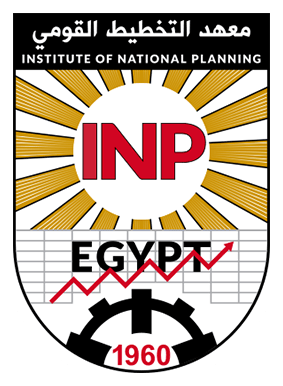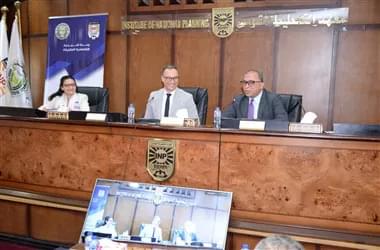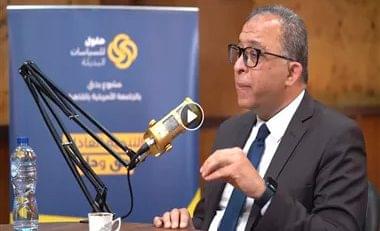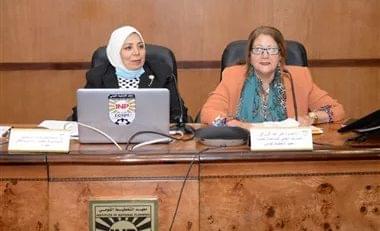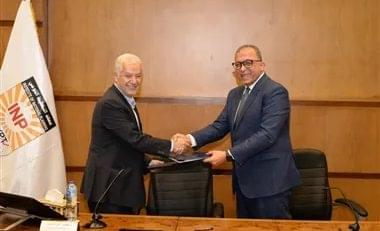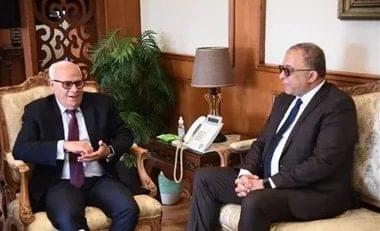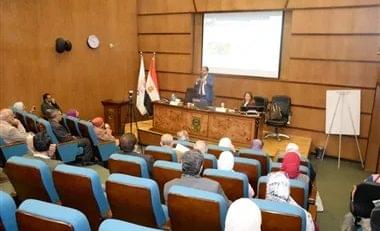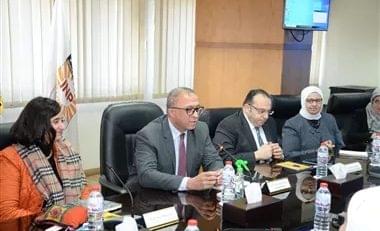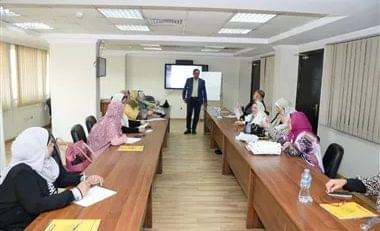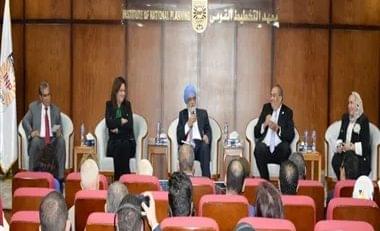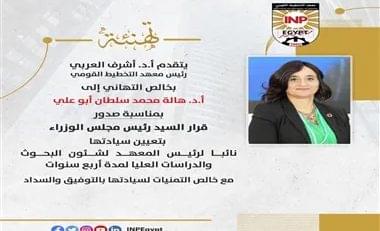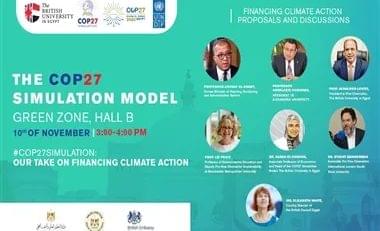The Institute of National Planning concluded a workshop on ” Economic Modeling in the Arab Countries” in cooperation with the Arab Planning Institute, which comes within the framework of the joint economic modeling unit , on May 13 and 14, 2023, with the participation and presence of a group of Arab experts and professors specialized in the field and a number of stakeholders. and those interested in this matter.
The workshop dealt with a number of topics that were based on development and planning and the role of quantitative models in guiding the development path in the Arab countries, including recent developments in building models and their implications for the formulation of development policies, in addition to contemporary applications of modeling in the areas of growth and sustainable development, and other topics of interest . relevance.
In this regard, Prof. Dr. Walid Abd Mawlah, Advisor and Chairman of the Research and Publication Committee at the Arab Planning Institute in Kuwait, explained the nature and objectives of quantitative economic models and modern modeling methodologies , referring to India’s experience in using modeling for planning purposes, and Kuwait’s experience in artificial intelligence.
Dr. Shereen Al-Shawarbi , Professor of Economics at the Faculty of Politics and Economics, Cairo University, touched on the recommendations regarding the forms of macroeconomic models that should be adopted and used in the Arab countries, and the hoped-for steps to build these models.
Dr. Qais Al-Yamami, Director of the Center for Strategic Foresight at ISESCO , pointed out in his presentation entitled Modeling , Scientific Foresight and Formulating Long-term Development Strategies that economic forecasting may not be accurate . It is sufficient, as it is affected by many variables and political, social and environmental conditions. He added that strategic foresight can be a tool for improving and supporting economic models and forecasts.
In the context of talking about recent developments in building models and their repercussions on the formulation of development policies, Dr. Belkacem Abbas, senior consultant of the Arab Planning Institute, stressed the need to work on motivating statistical agencies to provide available data in the form of time series in electronic databases, in addition to moving to the production of national accounting data. quarterly, and modify the model equations to include all the structural characteristics of developing economies.
Dr. Aisha Al-Alawi, researcher and economist at Sultan Moulay Suleiman University in the Kingdom of Morocco, reviewed the goals and importance of calculating general balance models as a good mechanism for identifying the most successful scenarios that achieve balance between economic, social and environmental development and development problems and their definition, and the matrix of social accounts and their models.
, Dr. Sarah Al-Talafha , a macroeconomist at the Central Bank of Jordan, referred to the great debate about the impact of financial shocks on the economy, including the shock of government spending, and the size of the fiscal multiplier under different forms of monetary policies.
This comes while Dr. Alaa El-Shazly, Professor of Finance and Investment at the Faculty of Economics and Political Science at Cairo University, explained that building models to study the proposed policies is related to many factors, including the availability of data and the rates of slowdown in their availability, and the possibility of linking the general equilibrium models with the information estimated for the partial equilibrium models and updating them over time using different methods. consistent statistic.
Dr. Raji Asaad, a professor of planning and public affairs at the University of Minnesota, concluded that labor market modeling could be used to produce long-term projections for labor supply, and the impact of various assumptions on long-term expectations could be evaluated.
Regarding the contemporary applications of modeling in the areas of growth and sustainable development, Dr. Hala Abu Ali, Vice President of the Institute of National Planning for Research and Graduate Studies, indicated that there are many challenges around environmental modeling , including the lack of a clear methodology that can be applied and compared with other countries, in addition to the lack of detailed data. For some variables such as water pollution, air pollution and emissions, as well as high fluctuations in some data such as international oil prices.
In the same context, Mohab Rifai, Professor of Urban Planning at the Faculty of Engineering, Ain Shams University, emphasized that there are many challenges associated with using system dynamics to model the interdependence between the economy and the environment, explaining that they include data limitations, model complexity, and stakeholder participation.
While Dr. Rasha Ramadan, Professor of Economics at the Faculty of Economics and Political Science, explained the importance of modeling the determinants of food insecurity at the household level, and considering food security an economic challenge, in addition to economic shocks such as the Corona virus and the Ukrainian-Russian war , stressing the importance of the availability of modern data, long data chains, and existing research. on evidence using microeconometric models that examine the characteristics of the poor and vulnerable to food insecurity.
Dr. Khaled Ismail, Chairman of the Economic Development and Poverty Committee, also reviewed, during the workshop, a study on designing regional and national MPI and simulating the impact of shocks, to analyze poverty trends between 2019 and 2021 .
Regarding the obstacles and challenges of developing modeling activity in the Arab countries, Dr. Maryam Raouf, Director of the Modeling Unit at the Institute of National Planning, reviewed international experiences in building an overall standard model, the main components of the overall standard models, the methodologies used, and the most important economic theories that discussed the determinants of spending, and reviewed the preliminary results of the stage The first is to build the standard model for Egypt, while Dr. Maged Othman, former Minister of Communications and Information Technology, referred to the modeling of social phenomena , concepts and measurements related to demographic change such as fertility, mortality, migration, and population projections in both the theoretical and applied fields.
